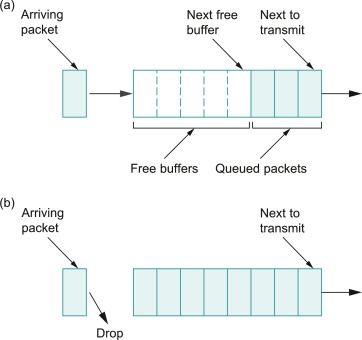FCFS Meaning
FCFS stands for First Come, First Served. It is a basic scheduling principle used to process tasks or requests in the order they arrive. The first task or request that enters the system is the first one to be addressed, followed by the next, and so on.
Here are some key characteristics of FCFS:
- Simplicity: FCFS is easy to understand and implement since it requires no complex logic or prioritization rules.
- Fairness: All tasks are treated equally; no task can jump ahead of another in the queue.
- Non-preemptive: Once a task starts executing, it runs to completion without interruption.
Common Applications of FCFS
FCFS is widely used in various systems, including:
- CPU Scheduling: In computing, processes are scheduled to use the CPU in the order they arrive.
- Network Data Transfer: Packets of data are transferred in the order they are received.
- Service Queues: In customer service or print queues, requests are handled in the sequence they are made.
While FCFS is simple and fair, it does have some drawbacks:
- Inefficiency: Long-running tasks can delay the execution of shorter, more urgent tasks, leading to inefficient use of resources.
- No Prioritization: FCFS does not allow high-priority tasks to be addressed sooner, which can be problematic in systems requiring task prioritization.
- Convoy Effect: A large task can cause smaller, faster tasks to wait unnecessarily, increasing overall wait times.
Characteristics of FCFS
Fairness: There is no priority given to any process or task. FCFS treats all processes with the same precedence, ensuring they wait in a queue until it is their turn, as determined by their order of arrival.
Simplicity: One of the key benefits of FCFS is its simplicity. It requires minimal overhead for implementation, making it ideal for systems that can be managed with little complexity.
Non-Preemptive: In FCFS, once a process begins execution, it cannot be interrupted until it finishes, unless the system crashes or is reset. Other tasks must wait for their turn.

Application of FCFS
FCFS is commonly used in job scheduling for CPU processes, disk scheduling, or network packet transmission. For instance, in CPU scheduling, when multiple processes request CPU time, FCFS schedules them based on their arrival time. Once a process starts executing, it runs uninterrupted until completion. The same principle applies to printing services or customer support queues, ensuring that requests are handled in the order they are made.
Limitations of FCFS
Poor resource utilization: Long-running tasks may hold onto resources for extended periods, causing shorter tasks to wait. This can result in inefficient resource usage, especially when tasks vary in size.
The Convoy Effect: A major drawback of FCFS is the convoy effect, where smaller tasks are forced to wait for larger tasks to complete before they can be executed. This increases overall wait times for all processes in the queue.
Inflexibility: FCFS does not account for task urgency or priority. In real-time systems, this can be problematic, as high-priority tasks may experience significant delays.
Conclusion
While FCFS is a simple and fair scheduling method, it may not be the most efficient in systems where resource optimization or task prioritization is crucial. In such cases, more advanced algorithms like Shortest Job Next (SJN) or Priority Scheduling are preferred.
